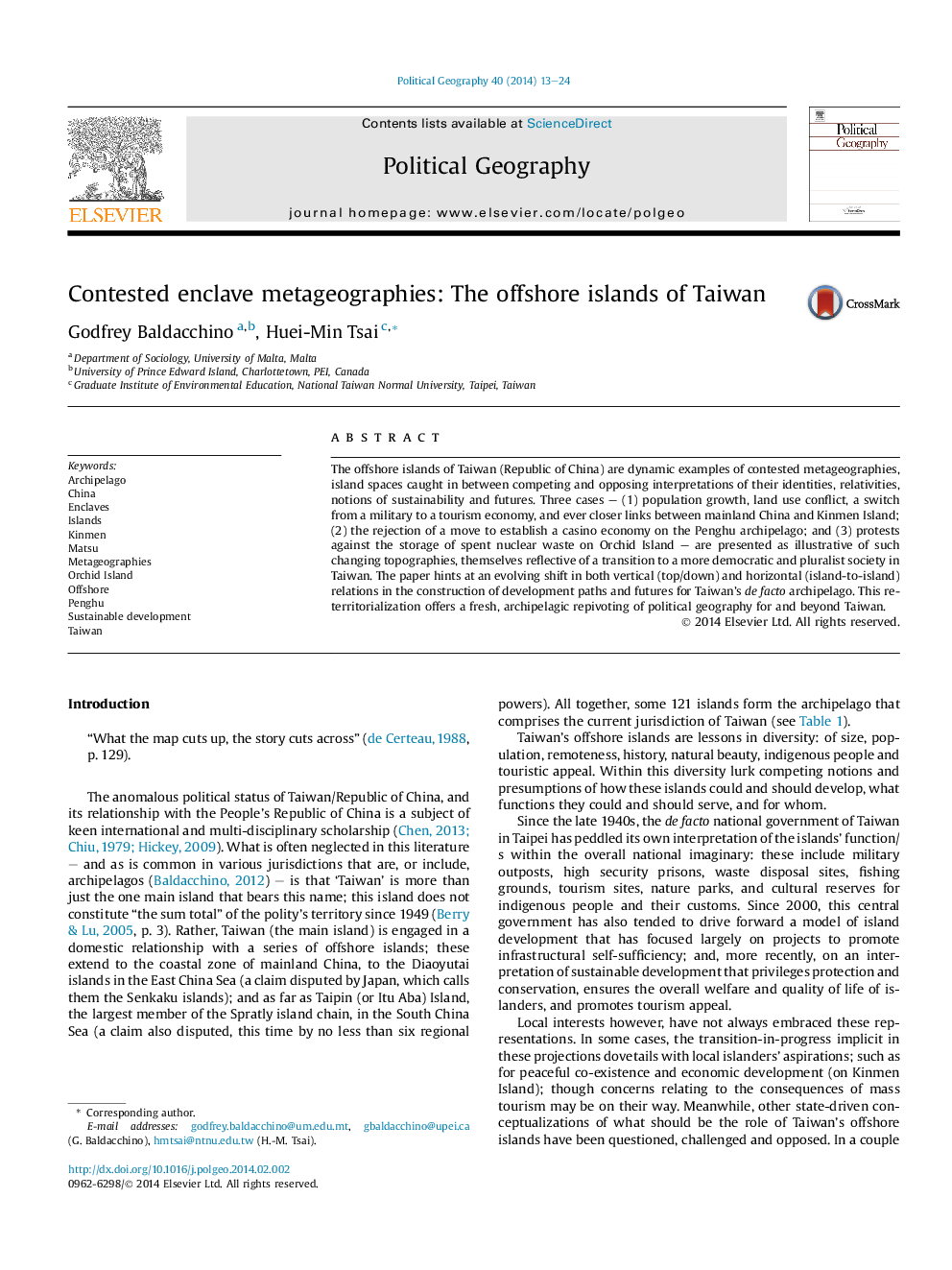| Article ID | Journal | Published Year | Pages | File Type |
|---|---|---|---|---|
| 7493508 | Political Geography | 2014 | 12 Pages |
Abstract
The offshore islands of Taiwan (Republic of China) are dynamic examples of contested metageographies, island spaces caught in between competing and opposing interpretations of their identities, relativities, notions of sustainability and futures. Three cases - (1) population growth, land use conflict, a switch from a military to a tourism economy, and ever closer links between mainland China and Kinmen Island; (2) the rejection of a move to establish a casino economy on the Penghu archipelago; and (3) protests against the storage of spent nuclear waste on Orchid Island - are presented as illustrative of such changing topographies, themselves reflective of a transition to a more democratic and pluralist society in Taiwan. The paper hints at an evolving shift in both vertical (top/down) and horizontal (island-to-island) relations in the construction of development paths and futures for Taiwan's de facto archipelago. This re-territorialization offers a fresh, archipelagic repivoting of political geography for and beyond Taiwan.
Related Topics
Social Sciences and Humanities
Arts and Humanities
History
Authors
Godfrey Baldacchino, Huei-Min Tsai,
